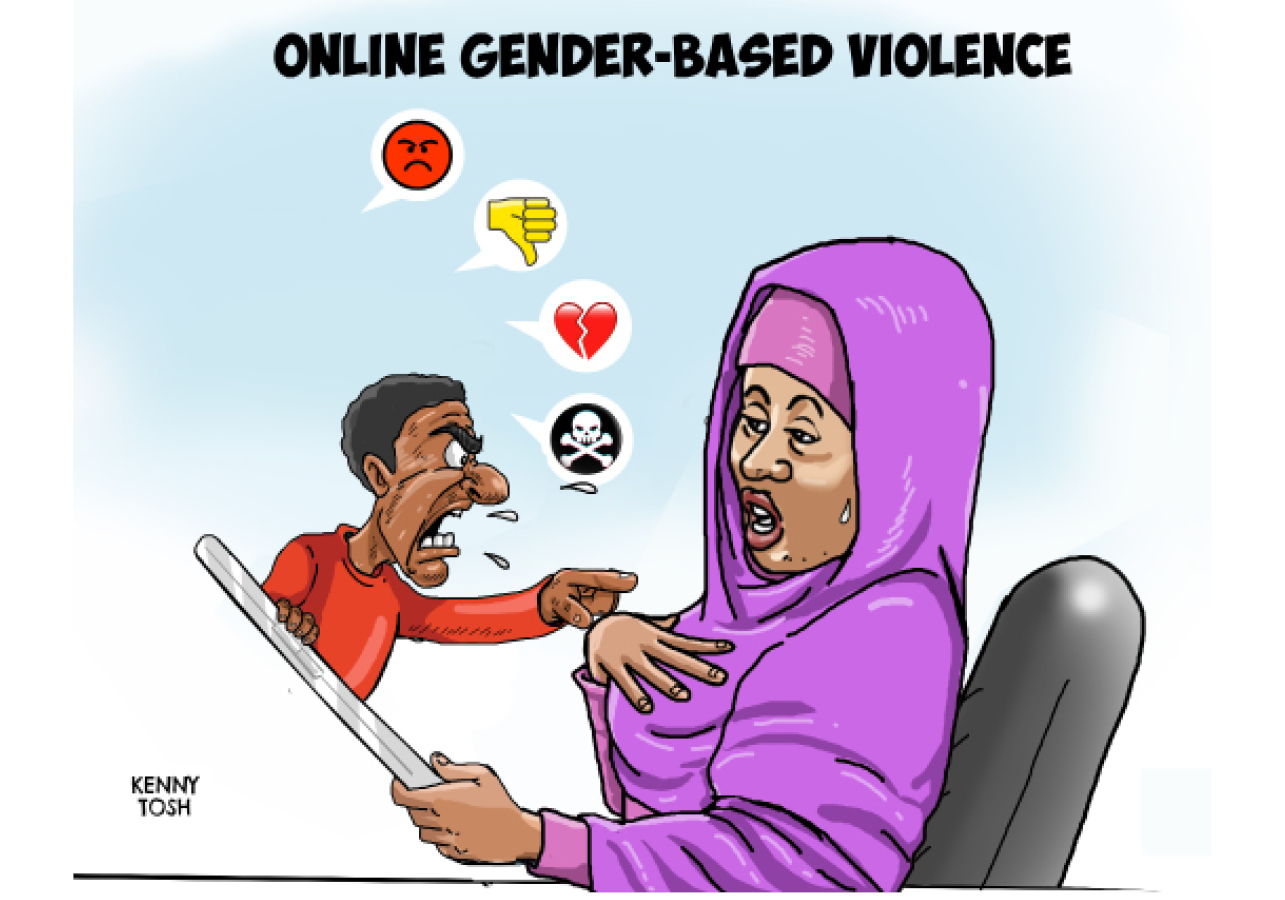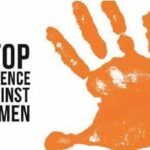Despite measures put in place by social media platforms to check abusive and harmful contents, several women still face online gender-based violence that leaves them feeling traumatised and almost voiceless.
Two years ago, Hafsat Bahara, a Kano-based journalist, found herself in the middle of a controversial publication that exposed her to Online Gender-Based Violence (OGBV). It started after she wrote and posted a profile piece about a prominent Islamic cleric through her organization’s Facebook handle. Little did she know that the post, written in Hausa Language, will subject her to a torrent of insults and threats from the cleric’s Facebook followers.
Recalling the incident she described as traumatic, Bahara said she was tracked on other social media platforms including Instagram and X, formerly known as Twitter. “They were persistently posting menacing threats of rape and threats to my life. It was an intense and deeply unsettling experience,” she recalled, saying the emotional toll extended to her family.
As the threats got severe, the journalists said her employers offered security measures, including attaching a police personnel, but her social media tormentors reported her accounts for allegedly making offensive comments and later staged a protest at her office premises after her media organisation refused to retract the story.
- Nigeria’s energy transition requires stakeholders’ synergy – NESG
- Kano community bemoans slow pace of water project after 40yrs of lack
Two years later, Hafsat Bahara explained to Daily Trust on Sunday that the aftermath of the harrowing experience had left a profound impact on her life and mental well-being.
“I had to disconnect from social media for a long time because of that incident. Even after I returned, I was traumatized to the point of being afraid to post anything. I feared that someone would bring up the issue. I stopped posting on Facebook altogether unless necessary, as I perceived users there to be bullies waiting to attack,” she said.
Online Gender-Based Violence is a form of GBV that has become increasingly pronounced in recent years. Various studies have explored this topic, providing valuable insights into the prevalence and impact of online GBV. A report conducted by UN Women in 2015, revealed that women and girls are disproportionately targeted by online violence, including harassment, cyberstalking, and non-consensual sharing of explicit content. Another report conducted by International Telecommunication Union in 2020, on the Global Digital Gender Gap highlighted that women are more likely to experience online harassment, hate speech and other forms of online GBV than men.
Consequently, Nigeria has a high prevalence of gender-based violence, with an estimated two million girls experiencing sexual violence yearly. The United Nations Office of the High Commissioner for Human Rights Committee on the Elimination of Discrimination against Women says only 28 per cent of such cases are being reported to authorities.
The country’s 2018 Demography and Health Survey shows that 31 per cent of women in Nigeria between ages 15 and 49 have faced a form of GBV at some point. This includes 9 per cent who experienced sexual violence and 6 per cent who faced physical violence. The data, however, does not address victims of online gender-based violence such as Hafsat Bahara.
However, a survey conducted by the International Development and Humanitarian Organisation, Plan International, highlights that Facebook is the primary platform where online attacks are most commonly encountered, saying 39 per cent have suffered harassment. The survey shows Facebook is then followed by Instagram which has 23 per cent, WhatsApp with 14 per cent, Snapchat with 10 per cent and Twitter with 9 per cent while TikTok has 6 per cent.
But women such as Bilkisu Yero, widely known as Arewa Queen on Facebook, are fighting back. Bilkisu Yero has gained notoriety as an assertive influencer who shares her personal experiences, highlighting the prevailing expectation for women to remain voiceless on social media.
“Whenever I try to express myself and engage in discussions on social issues, Facebook warriors accuse me of lacking manners, engaging in non religious behaviour, or deviating from societal norms,” she said, adding that she is being labelled a feminist for being vocal.
Yero emphasized that women like her face an uphill battle in the digital space, where patriarchal norms and societal expectations continue to limit their freedom of expression.
“Their (social media bullies) sole perspective revolves around belittling women, expecting them to remain silent and obedient. However, I refuse to conform to these expectations. I respond to them in the same manner they address me, sometimes even monitoring their online activities and deciding whether to engage, ignore or even block them. Nevertheless, such encounters can still be hurtful,” she said.
Additionally, Facebook has been described as a virtual ‘jungle,’ a label, often used by prominent social media influencers, like the founder of Northern Hibiscus, Aisha Falke, to describe a lawless space, where users exhibit aggressive behaviour and show little regard for the repercussions of their actions. The simplicity and user-friendly interface of Facebook have made it accessible to a wide range of individuals, including those who may not have extensive formal education.
But in recent years, there have been efforts to address bullying and social media violence, with many platforms providing reporting mechanisms, community guidelines, and content moderation teams to monitor and act against abusive and harmful content. Some of these measures include features like privacy settings, blocking tools, and filters that allow users to control their online experiences and reduce exposure to abusive interactions. Unfortunately, the detection of such abuses becomes even more challenging when it comes to vernacular languages, as opposed to English.
Thus, Hafsat Bahara feels there’s need for social media platforms to adopt more stringent policies as she says the existing measures remain insufficient.
“In my opinion, social media handles have strict policies on physical violence and other discriminatory things that have to do with children. But their policy on sexual harassment and threats to women is not iron clack.”
“You see a lot of derogatory and mean labels on women or cyberbullying but it’s not flagged by the social media handles as inappropriate contents, maybe it is because of the language used and so people get away with that. In other incidents, if you are to post nudity for example or any violence against animals you will instantly be flagged,” she said.
However, Mrs Bunmi Dipo Salami, a Gender Violence activist working with BAOBAB for Women’s Rights in Nigeria, emphasized the crucial need for women to understand how social media protection settings function and how to effectively utilize them to ensure their safety.
She called on Nigerians to report contents that perpetuate harmful stereotypes and support OGBV. “We should also promote digital literacy by educating internet users about privacy settings, blocking tools, reporting mechanisms to stay safe online. Netizens must familiarize themselves with the different forms of OGBV and use their social media platforms to share accurate and helpful information and resources about OGBV as well as available support services,” she said.
Daily Trust reports that Nigeria’s Cybercrime Act 2015 addresses offences related to OGBV through computer systems or networks, as well as transmitting communications that involve bullying, threats, harassment, extortion, or harm to the reputation or property of any citizen.
Section 24 (1) of the Act states that sending messages that are grossly offensive, pornographic, indecent, obscene, menacing, or false with the intention to cause harm or anxiety to another person is punishable by a fine of up to N7,000,000.00 or imprisonment for up to 3 years, or both.
Additionally, subsection 2 deals with the transmission of communications involving bullying, threats, harassment, extortion, or harm to a person’s reputation or property, and its penalties vary depending on the circumstances. Subsection 2(a) specifically addresses communications that instil fear of death, violence, or bodily harm in another person. The penalty for such communications includes imprisonment for 10 years and a minimum fine of N25,000,000.00.
In addition to the law, Mrs. Salami urged the government to collaborate with non-governmental organizations and women’s rights groups, forging strategic partnerships to implement and monitor the cybercrimes Act.
“To address OGBV, it is critical to employ the same digital spaces to educate women and girls to sensitize them on the risks of the unregulated nature of the internet even with its significant advantages,” she said, adding that synergy must be created between traditional and new media outlets to increase awareness to champion the fight against OGBV.
This publication was supported by the Baobab for Women’s Human Rights funded by the MacArthur Foundation

 Join Daily Trust WhatsApp Community For Quick Access To News and Happenings Around You.
Join Daily Trust WhatsApp Community For Quick Access To News and Happenings Around You.


